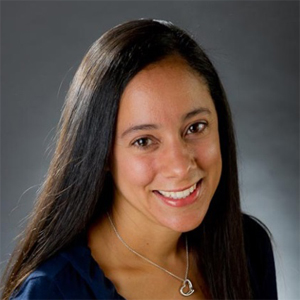The rich rewards of a steep learning curve
spent the first four months of her postdoctoral fellowship in lab pipetting lipoproteins by the bubbling method, a technique that is crucial for accurate and consistent results, while Ginsberg watched over her shoulder, making a 20-minute process feel like it was taking hours.
He had reason to be watchful. At the time, Reyes–Soffer had no previous lab experience. After earning an M.D. in the Dominican Republic, her homeland, she moved to the U.S. She joined Ginsberg’s lab at the Columbia University Irving Institute for Clinical and Translational Research in 2004. The early stage of her transition to translational research came with a steep learning curve, she recalls. Bench work required persistence, which she had.
The Journal of Lipid Research junior associate editors will present their work at the 2021 annual meeting, 2:15–3:30 p.m., Thursday, April 29.
Find out about registering for the annual meeting here.
Reyes–Soffer is now an assistant professor in the department of medicine in the division of preventive medicine and nutrition with her own lab at the Columbia University Irving Medical Center Vagelos College of Physicians and Surgeons, mostly involved in clinical and translational research. Medical school satisfied the human aspect of her interest in health, while research has given her a solid career path to inquire into disease states and mechanisms that regulate them.
“When an experiment in the lab gives us expected results, we smile big,” she said. “When it gives us unexpected results, we smile broader. This means we need to come up with a new hypothesis and find new answers to the problem.”
Ginsberg mentored Reyes–Soffer for 15 years, from postdoctoral fellow to R01-funded assistant professor. “What has remained constant is her enthusiasm for research, which is only exceeded by her boundless energy and determination to be a successful, independent investigator,” he said. “These characteristics, which are not uncommon in academics, are combined with her concern for the success of her colleagues and her own trainees and, most importantly, a ‘glass is full’ love of life that makes working with her a joy.”
Studying lipid-altering proteins in disease
 Gissette Reyes–SofferGissette Reyes–Soffer’s lab uses stable isotopes to examine lipid and lipoprotein metabolic pathways with established and newly developed methodologies of mass spectrometry. The lab has developed key analytical methods to examine lipid-altering proteins that regulate cardiovascular and liver diseases.
Gissette Reyes–SofferGissette Reyes–Soffer’s lab uses stable isotopes to examine lipid and lipoprotein metabolic pathways with established and newly developed methodologies of mass spectrometry. The lab has developed key analytical methods to examine lipid-altering proteins that regulate cardiovascular and liver diseases.
Heart disease is the leading cause of death for both men and women in the U.S. Reyes–Soffer and her team have shown the relationship that exists between lipid and lipoprotein metabolism and the most common cause of cardiovascular disease, atherosclerosis. Atherosclerosis, or hardening of arteries, is caused by a buildup of fatty plaques that prevents oxygen-rich blood from flowing normally to organs and tissues, and the condition can lead to heart attack, stroke and death.
The Reyes–Soffer lab also is working to improve the health of the largest organ in the human body, the liver, which in adults is about the size of a football. The liver is involved in food digestion, storing energy and eliminating toxic substances. The lab is enlarging their research to include proteins other than lipoprotein (a) that might be involved in nonalcoholic fatty liver disease and body fat accumulation.
Enjoy reading ASBMB Today?
Become a member to receive the print edition four times a year and the digital edition monthly.
Learn moreGet the latest from ASBMB Today
Enter your email address, and weâll send you a weekly email with recent articles, interviews and more.
Latest in People
People highlights or most popular articles

Meet Robert Helsley
The Journal of Lipid Research junior associate editor studies chronic liver disease and was the first in his family to attend college.

Exploring lifeâs blueprint: Gene expression in development and evolution
Meet Julia Zeitlinger and David Arnosti â two co-chairs of the ASBMBâs 2025 meeting on gene expression, to be held June 26-29, in Kansas City, Missouri.

ASBMB names 2025 fellows
Í”ĆÄÍ”żú and Í”ĆÄÍ”żú Biology honors 24 members for their service to the society and accomplishments in research, education, mentorship, diversity and inclusion and advocacy.

When Batman meets Poison Ivy
Jessica Desamero had learned to love science communication by the time she was challenged to explain the role of DNA secondary structure in halting cancer cell growth to an 8th-grade level audience.

The monopoly defined: Who holds the power of science communication?
âAt the official competition, out of 12 presenters, only two were from R2 institutions, and the other 10 were from R1 institutions. And just two had distinguishable non-American accents.â

In memoriam: Donald A. Bryant
He was a professor emeritus at Penn State University who discovered how cyanobacteria adapt to far-red light and was a member of the Í”ĆÄÍ”żú and Í”ĆÄÍ”żú Biology for over 35 years.

